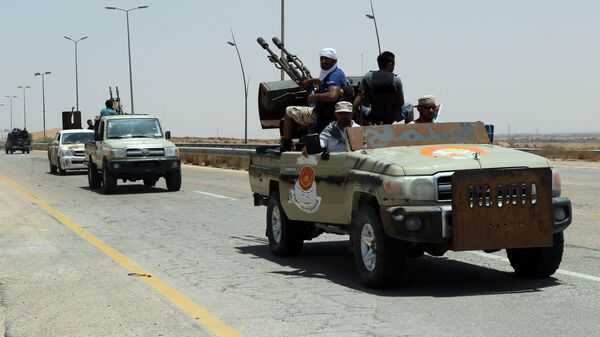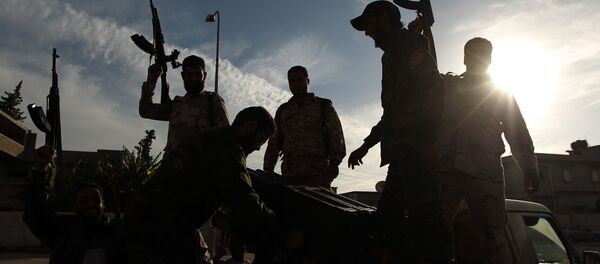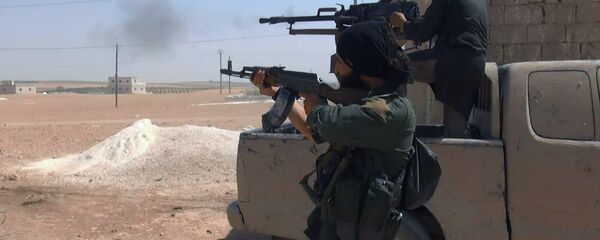On Wednesday, a Russian diplomatic source told Russia's Izvestia newspaper that Haftar, the leader of forces in eastern Libya loyal to the Tobruk-based Council of Deputies, had sent a special envoy to Moscow to ask Russia to end its weapons embargo, begin the armament of Libyan forces, and "start an anti-Islamist military operation in Libya similar to the one in Syria."
Commenting on the diplomatic mixup in a punchy op-ed for Svobodnaya Pressa, columnist Sergei Ishchenko recalled that this wouldn't have been the first time that Libyan officials would appeal to Russia for assistance. Last year, Tobruk-based Prime Minister Abdullah al-Thani told Sputnik that that he would support a Russian anti-Daesh operation in Libya, adding that he would like to resume deliveries under contracts signed under former Libyan leader Muammar Gaddafi.
"In other words," Ishchenko noted, "someone really seems to want to draw us into the endless and senseless war of all against all in the ruins of the once prosperous African state. For those who may have forgotten: in 2011, NATO's unsanctioned war against Libya, Operation Odyssey Dawn, resulted in a horrific political and economic decline for the country."
Today, the analyst added, Libya is a devastated warzone "where tribes whose loyalties are unclear slaughter one another, storming government buildings and burning international airports. Daesh militants hang out out in the open in government dachas of the Gaddafi government and prepare for new battles in Syria. A countless stream of refugees from all across Africa race endlessly to Europe, while Europeans argue in confusion about who is to blame for the crisis."
"And it's definitely not Russia," Ishchenko stressed. "But we are the ones being called to clean someone else's dirty military and political laundry…Is it worth going to Libya? In my opinion there is not a single good reason to do so."
Syria, the analyst stressed, is more than enough for Moscow at the moment. Furthermore, that country actually has a unified, internationally recognized government that didn't come to power as a result of a foreign intervention.
"Incidentally, their militaries recently got down to business there – and more power to them. On August 1, US Air Force planes from Italian airfields began striking militant positions in Sirte and the surrounding area. Before that, it became known that French special forces had been engaged in a secret war in Libya…after Daesh shot down a French helicopter with several French commandos on board."
Two weeks ago, Ischenko recalled, Italian Foreign Minister Paolo Gentiloni told Russian counterpart Sergei Lavrov that Rome "insists on cooperation with Russia in overcoming the Libyan crisis, which is important for the policy of Italy and migration."
Moscow will undoubtedly assist in any way it can any UN effort to stabilize the situation in the North African country, and offer moral support for any operation to root out Daesh terrorism there. Nevertheless, in Ischenko's estimation, Russia doesn't have either the material resources or the spirit to get engaged in another anti-terrorist operation, particularly when one of principle actors – Field Marshal Haftar, is widely believed to be a CIA asset.



